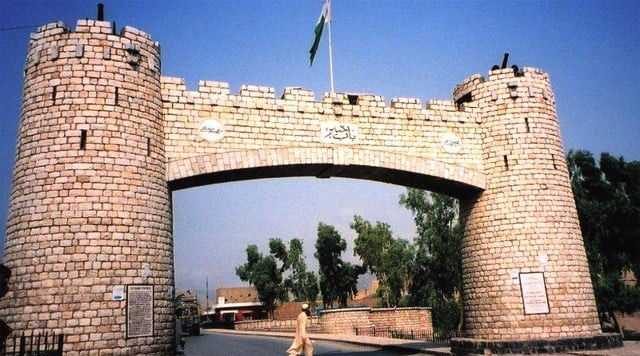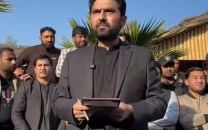Life in K-P’s multi-faith neighbourhood
Mohalla Beldaran in Peshawar is where diversity, inclusion and belonging find meaning

In a time when news is often tainted with occurrences of violence and religious extremism, one small neighbourhood in the country’s north-western province is testament to how muti-religious spaces can light a kindle of hope for interfaith dialogue and peaceful co-existence.
Located in Peshawar’s Gorkhatri district, Mohalla Beldaran has been a shared home to a community of Hindus, Muslims and Christians who have lived together in harmony for several generations. There is a mandir, a church and a Sufi shrine, all housed on the same stretch of street, while mohalla residents share an immemorial tradition of celebrating each other’s religious festivals with great fervor and neighbourly love.
On one corner of Beldaran, is the ancient Balmik Temple, the history of which predates the country itself. The area’s Hindu community and those from near and far, commune at the historic temple every Tuesday for a special prayer.
But on holidays like Holi and Deepavali, the mandir’s courtyards come alive with sounds of joy and laugher shared by a diverse community of Beldaran residents.
“My family has lived in this neighborhood for generations, we have all grown up on these streets and it has never mattered who prays to what god,” said Radish Kumar, a resident of Mohalla Beldaran.
“There are five Hindu houses here, other than the houses of Muslims and Christians. When a family member of mine fell ill some time ago and I wasn’t home, the entire neighborhood came together to arrange medical assistance and took care of my relative like their own. Perhaps that is the best example of neighbourly love and compassion which we have cultivated here over many years of co-existence,” he added.
Located not too far from the Hindu temple, is the Tehsil Gorkhatri Church, where the area’s Christian community has been congregating for a weekly Mass every Sunday for decades.
According to resident Tariq Masih, who has spent 40 summers of his life in Beldaran, the neighbourhood is home to over twenty Christian families who have lived here for generations.
“We treat all places of worship with the same respect as we do our own. Over so many years of living together, we have developed several ties of love and respect with our Muslim and Hindu neighbours, all of which we honour by being happy in each other’s happiness.
Be it a wedding, a funeral or a celebration of faith, we stand by each other in all our good times and bad,” said Masih.
Where the church wall ends, begin the walls of the shrine of Sufi saint Baba Syed Pahlawan Shah, who gathers great reverence from the areas Muslim residents.
But on every Thursday, many Hindu residents of the neighbourhood also join the shrine’s weekly assemblage in lighting candles and joss sticks to pay homage to the syncretic saint.
Similarly, every year on the saint’s Urs ceremony, a neighborhood-wide fundraiser is organised for which all religious communities donate and arrange langar for the shrine.
Like an almshouse, the shrine’s langar in turn feeds anyone in need, irrespective of their caste, class, religion or gender.
“We have spent most our lives in this neighborhood and hold close, neighbourly associations with everyone here despite whatever religions we may come from.
This is what creates a sense of belonging. This is our home and our doors are always open for all our neighbours just like their doors for us— both, literally and metaphorically,” shared Nadeem Shehzad, a Muslim resident of Mohalla Beldaran. “Sometimes, when there weddings and we can’t house all our guests our neighbours open a section of their house to accommodate our celebrations and partake in them with the same enthusiasm as family. This is an age-old tradition here in Beldaran and we are proud of it.”
Published in The Express Tribune, September 12th, 2020.



















COMMENTS
Comments are moderated and generally will be posted if they are on-topic and not abusive.
For more information, please see our Comments FAQ